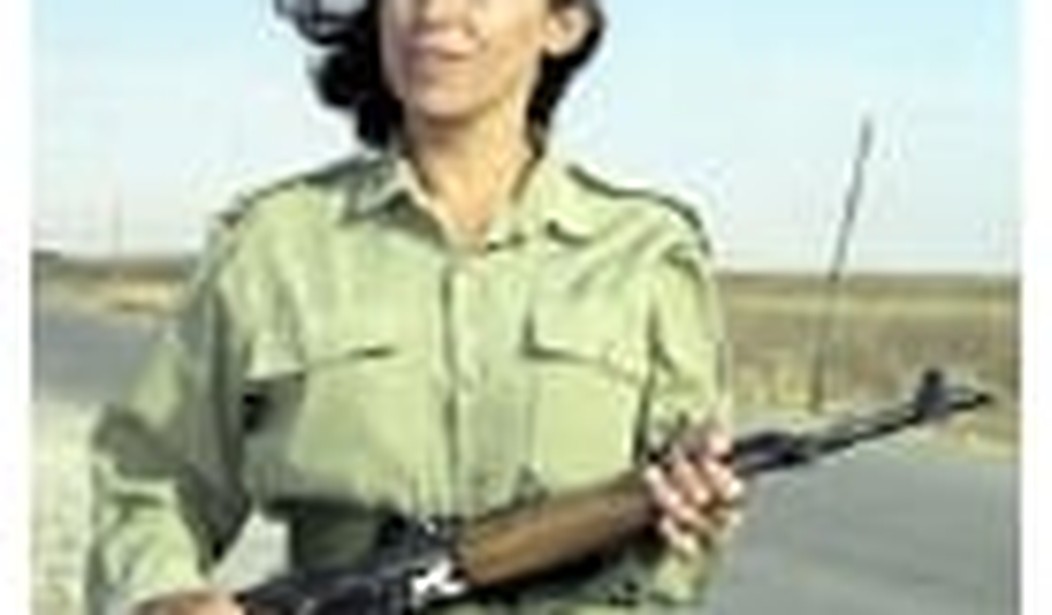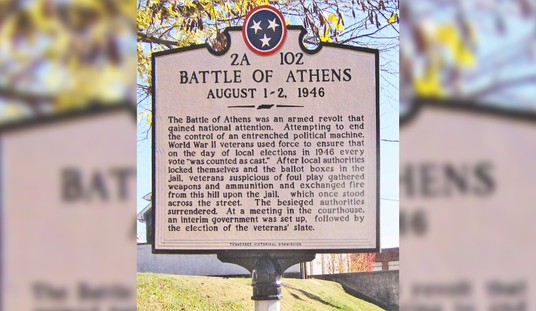Why Is Northern Iraq Safe?
by Richard Miniter
SULAIMANIYA, Iraq–In Baghdad, it is not unusual to wake to the sound of mortars. (Car bombs go off in daylight, to maximize the body count.) Here in northern Iraq, a few dozen miles miles from the Iranian border, the sound that jerks you from sleep in the roar of a back-hoe.
Pull back the curtains in your sleepless hotel room and you can watch its long, bionic arm scoop out coffee-colored earth. It is digging another foundation for another new building, usually financed by a Kurdish ex-pat who made good in Europe or America. When international investors arrive here in large numbers, they will find plenty of local competition.
Iraqi Kurdistan is largely prosperous and peaceful. Like the dog that didn’t bark in the Sherlock Holmes tale, the question is: Why?
The off-the-record answer from nearly everyone is: “No Arabs.”
This is actually not quite true. The Kurds have been accepting some 7,000 Arab refugees a month from Central Iraq. Kurds have their own language, culture, history and literature, some of which they share with the Arab world. Their customary dress is markedly different from the Arabs as is the way they wear their turbans. Kurds can be either sunni or shia (or even Christian). The legendary fighter of the Crusaders, Salaldin, was a Kurd from what is now Northern Iraq. He led Arab armies. For centuries, Kurds fought under Arab generals and sometimes against them.
The more interesting and accurate answer is the effectiveness of the local Kurdish government, its police, intelligence and especially its Peshmerga forces.
The Kurdish government has existed, in one form or another, since 1991. For a number of years, it had a hard time getting its act together. (So did America’s founders. Remember the Continental Congress and bitter expression “Not worth a continental?”) But, now Northern Iraq is a functioning democracy. Political leaders have learned how to compromise and work together. People largely trust the police and report suspicious activity. Disputes are mostly settled in courts, not back alleys and so on.
But the peshmerga are a vital variable in the equation. Jabar Manda is deputy minister of the peshmerga, commanding some 100,000 uniformed men.
He begins the discussion with a history lesson.
The word “peshmerga” dates back to the 1940s. It is Kurdish for an armed
Kurd and was first used by Kurdish leader Ibrahim Ahmad. Now the word means simply soldier. The word has evolved with Kurdish reality, from guerilla defending an embattled ethnic minority to a soldier safeguarding a democracy.
Yet, in Iraq, even success stories are a work in progress.
“All the things we are doing with them, in terms of training, in terms of battle fighting, fit all of the standards as a soldier. The budget comes from the Iraqi government [in Baghdad]. From August 2006, we are in negotiations with the Iraqi government and the ministry of defense and with multinational forces to have a memorandum of understanding. In the Iraqi constitution, there is an article which says the Kurdish region has a regional guard. And the peshmerga will become the regional guards. We want to know the number of peshmerga, the structure of peshmerga, the duties and tasks, the leadership, how are they armed, how they [other military units] will be armed in other federal regions.”
So the peshmerga are still evolving from a legal and constitutional point-of-view. For now, it is well funded by the central government and remains highly effective on the ground.
“We have an agreement with the Iraqi government, that all needs of the peshmerga will come from Iraqi defense ministry,” he says. The ministry has a budget of $8 billion for equipping the Iraqi Army and other forces. $5 billion of that total comes from the United States. The rest comes from oil revenues, as former deputy secretary of defense Paul Wolfowitz predicted. “Still we have not reached a final agreement on this, but we anticipate we will get one billion from that budget.”
Thousands of Iraqi Kurds serve in the Iraqi army, outside of northern Iraq. “When we talk about those in the south and middle of Iraq, they are not peshmerga, they are Kurds inside the Iraqi army. We have three brigades, one in Baghdad, the others in other cities, they are soldiers of Iraq, they are recruited by the Iraqi government.”
He believes that a united, diversified Iraqi army is essential for strengthening the central state.
“Yes, they are Kurds, but they are recruited by the Iraqi military. The system of the military is just like in America; there is a contract for each soldier. During Saddam’s regime, the soldier was compulsory, there was a draft. Now the system is finished. In the new system, you are contracted. Anyone in Iraq can sign an agreement for three years. The army includes Arabs, Kurds and Turkomen.”
There is close coordination between the Iraqi Army and the peshmerga, he said.
Could Iraqi Kurdistan survive with no help from America and just its
100,000 peshmerga?
“We don’t hope America will leave. We could protect Kurdistan. At that time, Kurdistan is a part of Iraq. According to the Iraqi constitution, it is a part of the whole Iraq, it is a matter of national leadership. We are not strong enough to do it.”
He continues: “America is standing face to face with Iran inside Iraq. Iran has a huge military, we cannot say we can protect our area [alone]. Iran geographically is much bigger, if you compare it to the population, it is 10 or 20 times greater in population.”
The peshmerga receive no direct American help, except for occasional exchange of intelligence. Just as often, the intelligence flows the other way.
The question that he cannot answer (because it is a political hot potato) is the one that is on everyone’s mind here. Will the U.S. provide Iraqi Kurdistan a separate security guarantee, a treaty that pledges America to defend Iraq’s most successful and democratic region should the Congress order a withdrawal of American forces?
It is an unspoken dream; a desire not to have everything the Kurds achieved in the past seventeen years taken away by Arab and Persian terrorists. Of course, the rest of Iraq has a similar dream. Yet they know that their future will decided thousands of miles away, in white Greco-Roman building on Capitol Hill.
I wonder what would happen if members of Congress left the green zone and came to Iraqi Kurdistan. Would it change their minds if they came to a part of Iraq where there are back-hoes, not bombs?









Join the conversation as a VIP Member